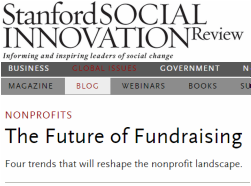Like you, I received a lot of solicitations for year-end. Here are the subject lines of a few of the ones I received by email, with the names or causes redacted or changed.
Did you find any of these compelling? Maybe the last two grabbed you a little bit? The rest? Probably not, except maybe the third to the last.
None of them hit a home run, in my view. Most don’t even make the grade.
I know it’s really tough to do within the limits of an email subject line, but you’ve got to convince your prospect to open your email somehow. The way you do that is (1) you tell the prospect there’s a problem and (2) you tell the prospect that if s/he gives, s/he’ll be a hero.
Next post we’ll look at how the subject lines could be rewritten to reel you and me in.
- “A Friend to [Worthy Charity]”
- “Dawn’s Story”
- “There’s Still Time to Support [Worthy Charity]”
- “Make [Worthy Charity] your charity of choice! Tuesday, Dec 2nd!”
- “Join [Worthy Charity]’s $100 from 100 Campaign”
- “Give the Gift of [Education/Health/Food etc.]” - #GivingTuesday!”
- "Offer [Youth/Moms/Students/Homeless etc.] a Positive Vision for the Future – Support [Worthy Charity]"
Did you find any of these compelling? Maybe the last two grabbed you a little bit? The rest? Probably not, except maybe the third to the last.
None of them hit a home run, in my view. Most don’t even make the grade.
I know it’s really tough to do within the limits of an email subject line, but you’ve got to convince your prospect to open your email somehow. The way you do that is (1) you tell the prospect there’s a problem and (2) you tell the prospect that if s/he gives, s/he’ll be a hero.
Next post we’ll look at how the subject lines could be rewritten to reel you and me in.


 RSS Feed
RSS Feed
